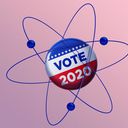The 2020 election may decide the path of U.S. science for decades to come

Published Date: 10/28/2020
Source: axios.com
The 2020 presidential election presents two stark paths for the direction of future-focused scientific research.Why it matters: Science is a long game, with today's breakthroughs often stemming from research carried out decades ago, often with government help. That means the person who occupies the White House over the next four years will help shape the state of technology for decades into the future.Where it stands: The Trump administration's record on science is criticized by experts in nearly every field, from climate change to biotechnology to health, who sense that science as a practice has been deprioritized and politicized.For the fourth straight year, Trump's 2020 budget proposal called for deep cuts to agencies like the National Institutes of Health and the National Science Foundation, though Congress has generally staved off those spending reductions, and actually increased fundingYes, but: Two research areas prioritized under the Trump administration — AI and quantum information sciences (QIS) — are at the heart of technonationalism and the global science race, particularly between the U.S. and China. In 2019 Trump committed to doubling non-defense AI and QIS research funding over the next two years, and earlier this summer, the White House announced hundreds of millions in awards to create multiple federal research centers dedicated to AI and quantum sciences. But for all the emphasis on AI, "I haven’t seen any real federal government investments yet, even though there’s such acute need," Eric Topol, director of the Scripps Research Translational Institute, told Nature. The other side: The focus on AI and quantum computing is likely to continue under Biden, but his agenda could also include cancer (he led the Obama administration's cancer initiative), while reinvigorating climate change research."We used to invest a little over 2.6% of our GDP in research and science. It's now down to 0.6%," Biden said in a Pod Save America interview last week. "We're going to invest in science and technology."Biden proposes a $300 billion increase in R&D funding that, like Trump, emphasizes "new breakthrough technology R&D programs to direct investments to key technologies in support of U.S. competitiveness — including 5G, artificial intelligence, advanced materials, biotechnology, and clean vehicles," according to the campaign's platform.The foreign factor: Perhaps the biggest question the U.S. faces on science is its relationship with China.The U.S. and China collaborate with each other more than anyone else on science and technology, and students and researchers move between the two countries, further intertwining their scientific enterprises. But there are concerns about foreign interference in U.S. research and the impact of high-skilled immigrant workers on the wages of U.S.-born workers.The next president's decisions about how to balance those concerns with the country's competitiveness on the global science and tech stage could shape the collaborations that drive scientific progress for years to come.Be smart: Under the Trump administration, there's been intense scrutiny of research partnerships and investigations into foreign influence on U.S. research that some experts argue is eroding collaborations, while federal agencies say the focus is on unethical behavior. The administration also proposed or enacted severe visa restrictions for students and scholars, arguing they protect American workers. But experts counter cutting off foreign talent will ultimately hurt U.S. competitiveness.Studies have shown that immigrant scientists generate patents at twice the rate of native-born researchers, and over the last two decades, immigrants have comprised more than a third of U.S. Nobel winners in the sciences. The Biden campaign has said he would ease visa restrictions on foreign students and exempt from any visa cap Ph.D. graduates in the STEM fields.What to watch: Whether calls for science and tech alliances among geopolitically aligned countries gain steam under the next administration. Without reducing the number of researchers coming from China, the U.S. could look to diversify its talent flow by engaging more with European and East Asian countries, says Remco Zwetsloot of Georgetown University's Center for Security and Emerging Technology, who recently authored a paper that found a net benefit to the U.S. from Chinese students and researchers working in the country.Of note: Scientific American made the first presidential endorsement in its 175-year history, picking Biden for his "fact-based plans to protect our health, our economy and the environment."The bottom line: The U.S. has been the world's unquestioned scientific leader for decades, but whether that continues in the face of intense competition may depend on what happens on Nov. 3.